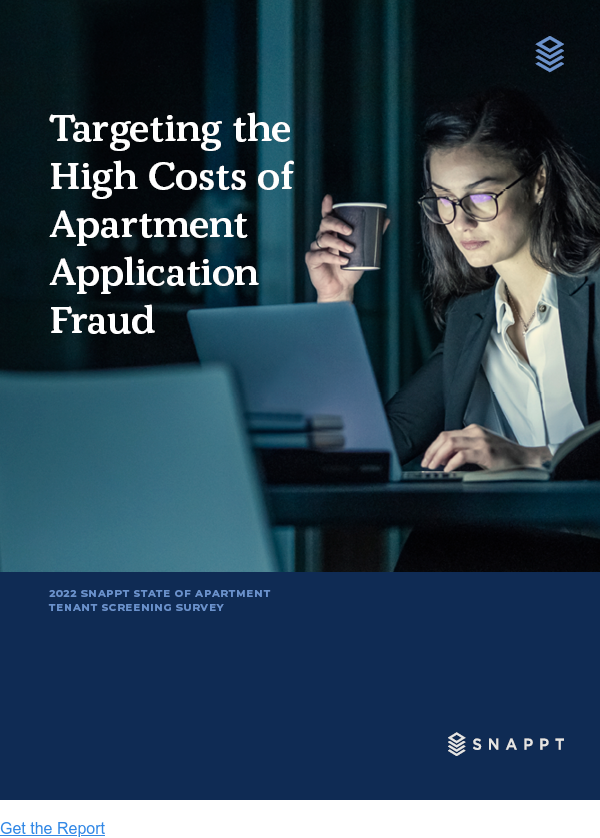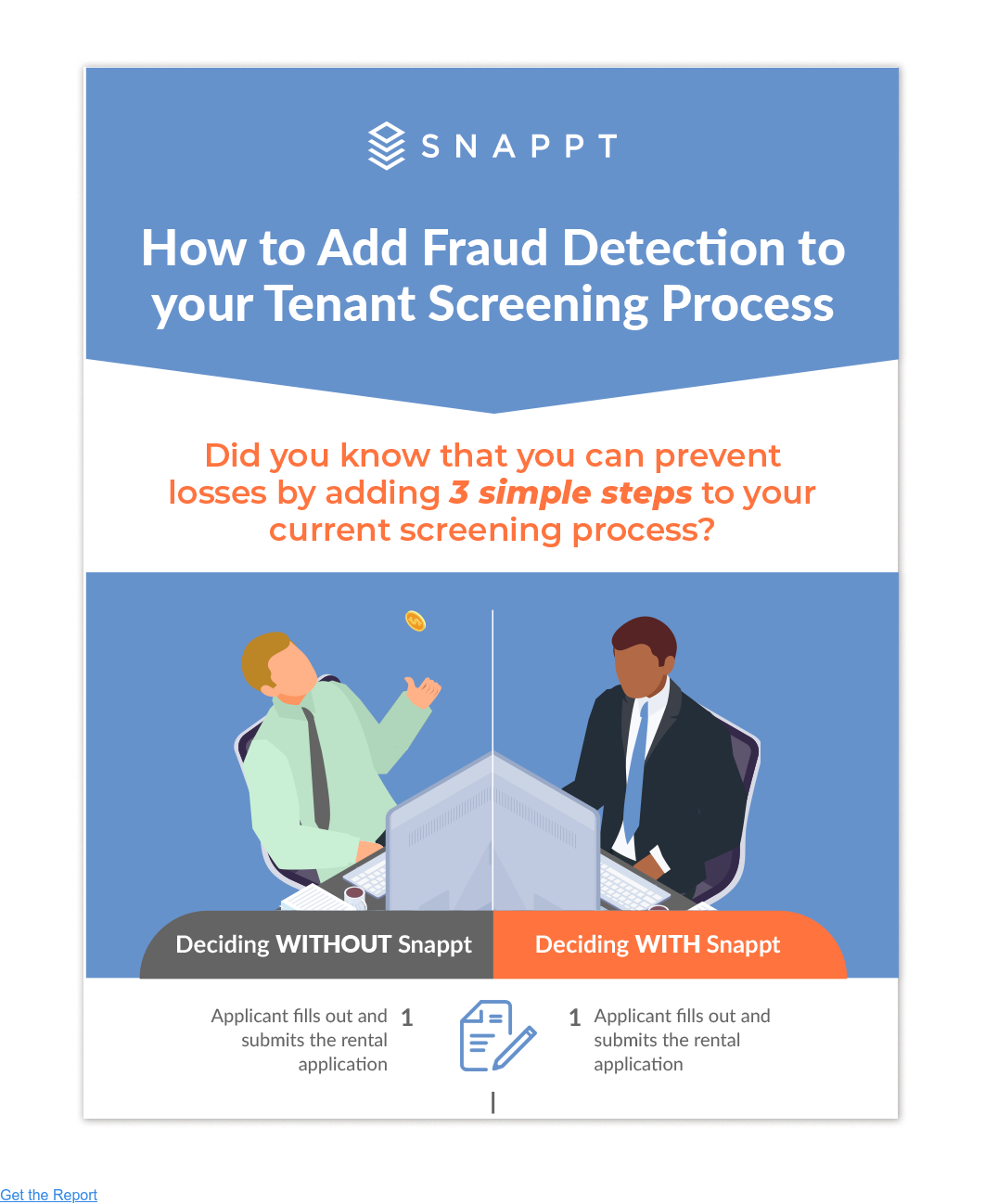In our recent study, Confronting the Costs of Rental Fraud, we found that two-thirds (66%) of property managers reported that they had been the victim of fraudulent rental applications. Property managers also noted that 10% of fraudulent applications are going unnoticed during the screening process.
Technology enables rental application fraud, which in turn leads to evictions
This has been an ongoing problem with a sharp increase in tenant fraud for the past few decades. If you think you can spot a fraudulent tenant in the first five seconds, I promise you; you can't. In addition to the problem of evictions, there’s the risk that some renters arrive from day one intending to never pay rent. This often comes in the form of either identity theft or through “synthetic fraud,” whereby a fake identity has been created using a mix of existing and fictitious data elements, and a newly minted credit history is used for an identity that doesn’t exist. Using this scheme, the renter occupies a unit by entering with a false credit history and a fake name, never pays any rent, and then disappears to pursue their next victim after a few months of free rent.
What, exactly, is rental application fraud?
In short, it is intentionally lying on a rental application. It is one thing to make a mistake or forget a detail, it’s bound to happen from time to time, but clear misrepresentation on the rental application is fraud. And it’s not just professional fraudsters taking advantage. The availability of photo editing software, high-quality digital cameras, and personal scanning devices is tempting even the average applicant to want to fib a bit here and increase their income a bit there. At the end of the day, the intent is what makes this fraud, no matter how small it may seem.
How prevalent is application fraud?
Application fraud is more prevalent than you would think, especially in a world of online applications. Take a look at these common Google search trends. There are users, and in high numbers, I might add, seeking information on how to forge documents in one way or another.
- “Penalty for altering a notarized document”
- “Altering a legal document”
- “Can you alter a scanned document?”
- “How to forge a notarized document”
- “Forging a signature on a legal document”
- “How to forge a scanned document”
- “How to forge a date on a document”
And my favorites:
- “How to commit credit card fraud”
- “How to commit check fraud and get away with it” --> HINT: Start by not Googling it
- “How to commit check fraud and get away with it”
- “How to commit fraud online”
- “How to commit loan fraud”
- “How to commit fraud with social security number
- “How to commit identity fraud”
- And the list goes on...
Does this application fraud impact the rental industry? You bet it does. These high-volume search phrases imply that while there is a bit of hesitation in regards to the consequences of being caught, the intent to commit rental application fraud is clearly there.
- Can you lie on a rental application?
- How to lie on a rental application?
- Lying about income on rental application
- Lying on rental application felony
- Penalty for lying on rental application in California
- What happens if you lie on a rental application?
Why does rental application fraud lead to evictions?
The intentions of fraud vary in consequence to the property owner. In the example above regarding synthetic fraud, the tenant has no intent to pay right from the start. Properties will lose several months of income from the unit, and whatever costs are incurred during the eviction process. This tenant is savvy and planned for the eviction. They will most likely draw out the eviction process for as long as possible, bearing high losses on the property with minimal consequence to the tenant.
In the case of a newly laid-off individual or self-employed individual, the risk will likely be delayed. If the applicant has falsified employment or inflated their income statements, their financial reality may take a few months to surface. Over time as the financial burden weighs down on the tenant, late payments and soon missed payments may be in the near future. Unless their financial hardships are rectified, the next phase is either a broken lease or an eviction. This situation incurs not only the costs of lost rental income but also tends to utilize more staff-hours than usual trying to mitigate the losses with the tenant.
Technology as an Enabler and a Defender
Luckily, technology advancements in fighting back against fraud have improved as well, providing organizations with the means to stay a step ahead of even the most sophisticated fraudster. The best way to determine whether or not your applicant is lying to you is to deploy sound tenant screening processes. This includes both standard and technology-enabled best practices. With the right combination, you can limit your risk of actually allowing a fraudulent applicant to become a tenant in the first place and prevent the high costs of the eviction process from hitting your balance sheet. By consistently screening your applicants with a trusted provider like Spirited, you dodge potential risky applicants.
Spirited’s proprietary software is designed to integrate seamlessly into your existing tenant screening process. We make it easy to identify falsified application documentation such as pay stubs, identification, and more. You can detect fraudulent documents with advanced data-driven forensics methods by simply uploading the applicant’s documents via the upload link, and within 24 hours, Spirited will analyze and review the documentation. Reduce fraud, screen tenants faster, and reduce costs for only $1.50 per application. Try out the ROI calculator to see how much you could save annually.
Spirited's proprietary software is a critical first step in the modern tenant screening process and integrates seamlessly into your existing tenant screening process. Request a demo today to see how Spirited can work for you.
Enjoyed this post? For more information on ways property managers can avoid evictions, please download our new eBook, "21 Proven Strategies to Avoid Evictions."











